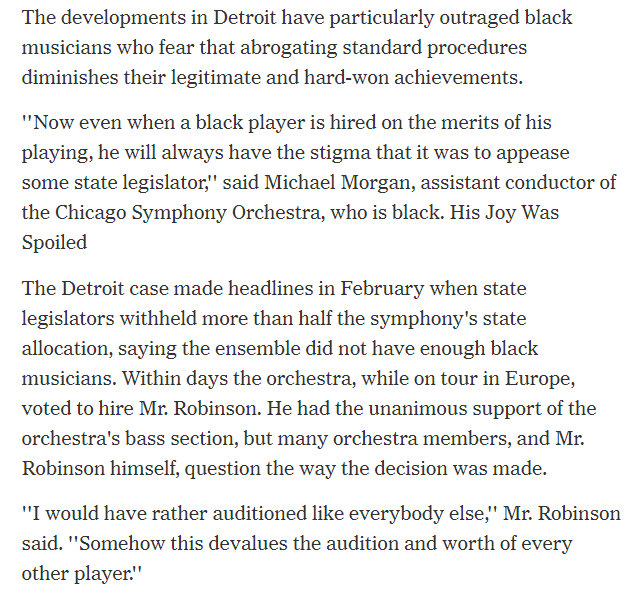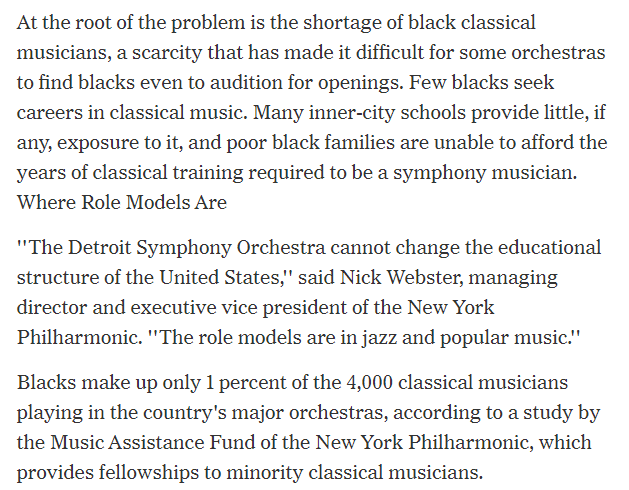Blind auditions, which exist because of bias to begin with, are seen as bad because sometimes the end result doesn& #39;t look good in photos. https://www.nytimes.com/2020/07/16/arts/music/blind-auditions-orchestras-race.html">https://www.nytimes.com/2020/07/1...
Just so you get an idea of how pervasive this is, this type of controversy goes back decades. Here& #39;s the New York Times on this topic from 1989. https://www.nytimes.com/1989/03/05/us/discordant-notes-in-detroit-music-and-affirmative-action.html">https://www.nytimes.com/1989/03/0...
I swear this article could have been written today. None of it makes any sense and the people involved think it& #39;s bad, but the tide of political activism and on-paper minority quotas inexorably moves mountains.
Also the NYT article from yesterday is a music CRITIC complaining that musician UNIONS are strong supporters of blind auditions. That& #39;s just about all you need to know.
I don& #39;t think many people understand the type of dedication and excellence and competitiveness that exist in the professional classical musician world. You can& #39;t just not hire the objectively best players and the union knows this too. Blind auditions are the best way.
I think Hilary and Jackie does a good job of showing the line that separates a really good musician from a world class one. It& #39;s not strictly about that but I always thought it captured that concept well. https://www.imdb.com/title/tt0150915/">https://www.imdb.com/title/tt0...

 Read on Twitter
Read on Twitter





